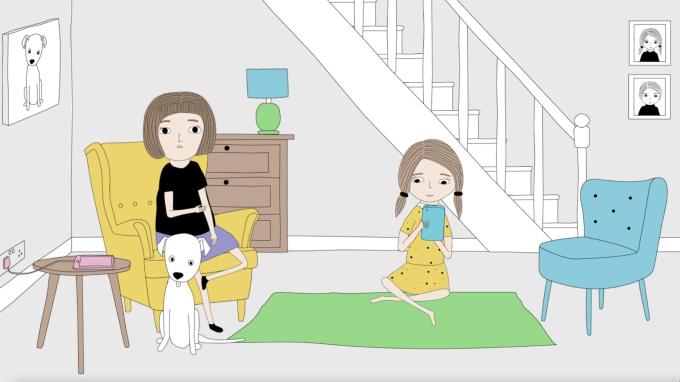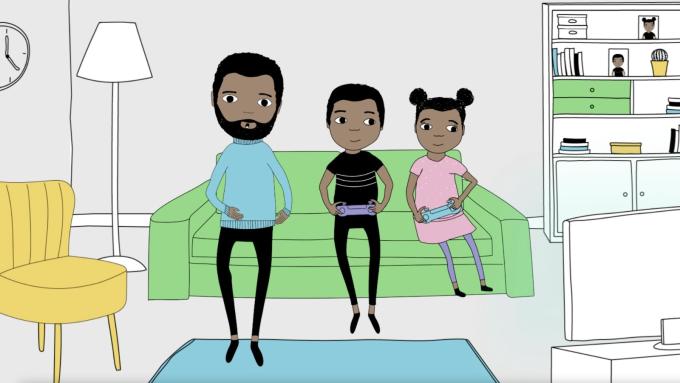Our London-based TIGER Service supports children and young people up to the age of 25 where there is evidence or concerns around harmful sexual behaviours, youth violence, child sexual abuse, assault, or exploitation. We spoke to Katie Wetherell, a practitioner at our TIGER Service, who reflects on what a typical day looks like for her as she travels between schools for one-to-one sessions, PSHE (Personal, Social, Health, and Emotional) lessons, and training sessions for professionals.
TIGER stands for Trauma Informed Growth and Empowered Recovery, which explains the TIGER Service’s approach to supporting children and young people. Through one-to-one sessions and group PSHE lessons, practitioners like Katie provide children and young people with the support they need to understand their experiences and express themselves, and give them the tools they need to recover, including emotional regulation techniques and personal goal setting.
One-to-one sessions with children and young people
The way Katie handles each one-to-one session depends on the reason a young person was referred for support, their age, and their background. For some of the young people she works with, there can be a number of professionals involved at different stages of their lives, from social workers to police, and they can be quite hesitant to let another person in.
“The first few sessions are important for developing a picture of who a young person is and what they need help with, but also for building a relationship with that young person based on trust, honesty, and transparency, so that they can feel confident in opening up about what they need help with.
“This morning, I worked with a 14-year-old to draw out a mind map of all the things I think we should talk about, and he also added things that he wanted to cover. One of the main issues we’re working on together is the abuse he’d faced by members of his family, so we included those family members on his mind map as well as healthy relationships and healthy/unhealthy behaviours. He also wanted to add in routines, crushes, and school life. So, between us we came up with a plan for what we want to talk about in the session,” she said.
Teaching PSHE lessons
Katie also leads interactive PHSE lessons with children and young people in schools across London covering a variety of topics, including healthy relationships and consent, depending on the year group.
“Although teachers do an incredible job, they aren't necessarily best placed to handle these kinds of conversations. Students aren't always comfortable talking about things like sex, masturbation, or pornography with teachers they see every day. For us, it's an everyday conversation, which helps young people feel more comfortable talking openly to us.
This afternoon, I worked with a group of Year 6 students where one of the children had instigated some sexual harm against another child. Whilst that specific issue was being dealt with, the reason the school called us in was because lots of other children saw it happen but didn’t say anything, which was very concerning.
One of the issues that we uncovered was that some of the boys were really into Andrew Tate, which is obviously terrifying because these are 10- and 11-year-old children. We split the group in half by gender and I had the boys’ group where we talked about Andrew Tate, gender stereotypes, and misogyny in a child-friendly way to help them consider why they felt a certain way. We also talked about how there are lots of really great people in the world that can be role models who don’t hurt people and who don’t think boys are better than girls,” she said.
It was good because I could talk freely with someone without having someone interrupting. I feel more confident, I can talk with my foster carer and social worker, I feel safer because I have more information and I feel understood by adults around me.
Young person
Training for professionals who work with children and young people
The TIGER Service also delivers training for other professionals like social workers, foster carers, and teachers to support them in their roles. Training topics include harmful sexual behaviour, sexual abuse and exploitation, and how to adopt a trauma-informed approach.
“The second half of my day is focused on leading a half-day session about working with children who display harmful sexual behaviours. During the session, another practitioner and I worked with staff from a school in London to think about expected sexual behaviours and when they become harmful, how to manage risk, and safety planning.
We discussed what normal sexual development should be expected at different ages and how to identify when behaviour is inappropriate or abusive, and then we looked at case studies where we think about how potentially concerning behaviours may or may not be problematic. Myth-busting around harmful sexual behaviours is another big part of these sessions, as well as getting our participants to check any unconscious biases they might have,” Katie explained.
Empowering children, young people, and professionals
Katie and the other practitioners at our TIGER Service use their specialist knowledge and expertise from their different backgrounds to empower children and young people with the context to understand their experiences and feelings while also helping other professionals to think critically about their roles and responsibilities with the children they support. “Everyone in our team comes from a different background – some are previous social workers, youth workers, counsellors, or domestic violence workers. I'm trained as a child psychotherapist.
By applying what we know and what we’ve learned previously, we’re able to help children, young people, and professionals to address very complex and emotionally sensitive topics by giving them the tools they need to be more aware, resilient, and safe,” she said.

Child sexual abuse and exploitation
We support thousands of children and young people who have experienced sexual abuse. We also provide support to their families, and to people working with children, such as social workers and teachers, through consultation and training. Learn more about child sexual abuse (CSA) and child sexual exploitation (CSE) from our experts who work in this area.

Is my child safe online? Parents' questions answered
We asked Will Gardener, CEO of Childnet, and Suzanne Taylor, Assistant Director Impact - Child Sexual Abuse and Exploitation at Barnardo’s, to answer some of your questions about keeping children safe online.

Keeping children safe online
Every child deserves to feel safe online – and we all have a part to play. Find out more about online safety from the experts.


